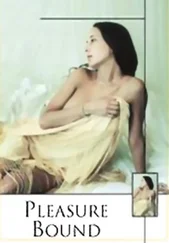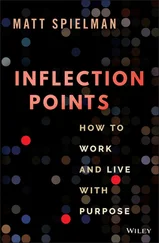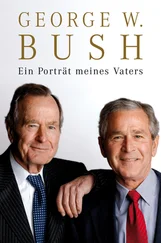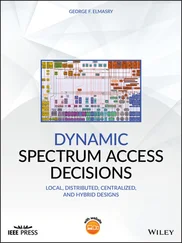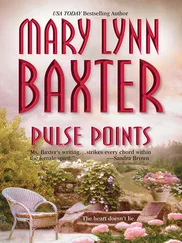In 1970, Dad decided to run for the Senate again. We felt good about his chances in a rematch against Ralph Yarborough. But Senator Yarborough had become so unpopular that he lost his primary to Lloyd Bentsen, a conservative Democrat. Dad ran a good race, but again came up short. The lesson was that it was still very tough to get elected as a Republican in Texas.
Soon there was another lesson. Defeat, while painful, is not always the end. Shortly after the 1970 election, President Richard Nixon made Dad ambassador to the United Nations. Then, in 1973, President Nixon asked Dad to head the Republican National Committee. It turned out to be a valuable lesson in crisis management when Dad guided the party through the Watergate scandal.
Mother and Dad were in the White House the day President Nixon resigned and Gerald Ford took the oath of office. Soon after, President Ford offered Dad his pick of ambassadorships in London or Paris, traditionally the two most coveted diplomatic posts. Dad told him he would rather go to China, and he and Mother spent fourteen fascinating months in Beijing. They came home when President Ford asked Dad to head the Central Intelligence Agency. Not a bad run for a twice-defeated Senate candidate. And of course it didn’t end there.
I admired Dad’s accomplishments. Since my teenage years, I had followed his path closely—Andover and Yale, then service as a military pilot. As I got older, I had an important realization: Nobody was asking me to match Dad’s record, and I didn’t need to try. We were in completely different situations. By age thirty, he had fought in a war, married, fathered three children, and lost one of them to cancer. When I left the Guard in my late twenties, I had no serious responsibilities. I was spontaneous and curious, searching for adventure. My goal was to establish my own identity and make my own way.
For their part, my parents recognized my buoyant spirit and did not dampen it. They did tell me when I got out of line. One of the sternest conversations I ever had with Dad came when I was twenty years old. I was home from college for the summer and roustabouting on an oil rig for Circle Drilling out of Lake Charles, Louisiana. I worked one week on, one week off. After a lot of hot, hard work, I decided to blow off my last week to spend time with my girlfriend in Houston.
Dad called me into his office. I told him nonchalantly that I had decided to quit my job a week early. He told me the company had hired me in good faith, and I had agreed to work until a certain date. I had a contract and I had violated it. I sat there feeling worse and worse. When he ended with the words “Son, I am disappointed,” I was ashamed.
A few hours later, the phone rang at the house. It was Dad. I worried I was going to get another lecture. Instead, he asked, “What are you doing tonight, George?” He told me he had tickets to the Houston Astros game, and he invited me and my girlfriend. I immediately accepted. The experience reinforced the importance of honoring my word. And it showed me the depth of my father’s love.
Dad was serious when needed, but our household was full of laughter. Dad loved to tell jokes to us kids: “Have you heard the one about the airplane? Never mind, it’s over your head.” He came up with nicknames for family and friends. At one point he called me Juney, short for Junior. My brother Neil was known as Whitey, which morphed into Whitney, because of his blond hair. Dad’s dear friend James Baker became Bake. In his crowning achievement, Dad dubbed Mother the Silver Fox.
Dad’s wonderful sense of humor continued throughout his life. When he was president, he created the Scowcroft Award—named for National Security Adviser Brent Scowcroft—for staff members who fell asleep during meetings. Now, in his eighties, he shares jokes via email, rating each on a scale of one through ten. A few years ago, Dad was recovering from hip surgery at the Mayo Clinic. When the nurse came to check on him, he asked, “Are my testicles black?” She was taken aback. “Excuse me, Mr. President?” He repeated his question, “Are my testicles black?” As she reached for the sheet, he quipped, “I said, ‘Are my test results back?’ ” His medical team roared with laughter.
Over the years there has been a lot of speculation about my relationship with Dad. I suppose that’s natural for the first father-and-son presidents in 172 years. The simple truth is that I adore him. Throughout my life I have respected him, admired him, and been grateful for his love. There is an infamous story about me driving home late one night, running over the neighbor’s trash can, and then smarting off to Dad. When some people picture that scene, they envision two presidents locked in some epic psychological showdown. In reality, I was a boozy kid, and he was an understandably irritated father. We didn’t think much about it until it came up in the newspapers twenty years later.
Moments like these are a reminder that I am not just my father’s son. I have a feisty and irreverent streak courtesy of Barbara Bush. Sometimes I went out of my way to demonstrate my independence. But I never stopped loving my family. I think they understood that, even when I got on their nerves.
I finally saw things from my parents’ perspective when I had children of my own. My daughter Jenna could be sassy and sharp, just like me. When I was running for governor in 1994, I accidentally shot a killdeer, a protected songbird, on the first day of dove hunting season. The blunder produced headlines but quickly faded. A few weeks before the election, Laura and I campaigned with the girls at the Texas State Fair in Dallas. Twelve-year-old Jenna won a stuffed bird as a prize at a carnival game. With the TV cameras rolling, she held the plush animal in the air. “Look, Dad,” she said, giggling. “It’s a killdeer!”

In the fall of 1972, I went to visit my grandmother in Florida. My college friend Mike Brooks was in the area, and we played golf. Mike had just graduated from Harvard Business School. He told me I should consider going there. To make sure I got the message, he mailed me an application. I was intrigued enough to fill it out. A few months later, I was accepted.
I wasn’t sure I wanted to go back to school or to the East Coast. I shared my doubts with my brother Jeb. I didn’t know Jeb very well when he was growing up—he was only eight when I moved out for boarding school—but we grew closer as we got older.
Jeb was always more serious-minded than I was. He was intelligent, focused, and driven in every way. He learned to speak fluent Spanish, majored in Latin American Affairs, and graduated Phi Beta Kappa from the University of Texas. During his senior year in high school, he lived in Mexico as part of a student exchange program. There he met a beautiful woman named Columba Garnica. They were both young, but it was obvious Jeb was in love. When we went to the Astrodome together, I’d watch the ball game and he’d write letters to Colu. They got married two weeks after his twenty-first birthday.
One night, Jeb and I were having dinner with Dad at a restaurant in Houston. I was working at a mentoring program in Houston’s poverty-stricken Third Ward, and Dad and I were having a discussion about my future. Jeb blurted out, “George got into Harvard.”
After some thought, Dad said, “Son, you ought to seriously consider going. It would be a good way to broaden your horizons.” That was all he said. But he got me thinking. Broadening horizons was exactly what I was trying to do during those years. It was another way of saying, “Push yourself to realize your God-given talents.”
For the second time in my life, I made the move from Houston to Massachusetts. The cabdriver pulled up to the Harvard campus and welcomed me to “the West Point of capitalism.” I had gone to Andover by expectation and Yale by tradition; I was at Harvard by choice. There I learned the mechanics of finance, accounting, and economics. I came away with a better understanding of management, particularly the importance of setting clear goals for an organization, delegating tasks, and holding people to account. I also gained the confidence to pursue my entrepreneurial urge.
Читать дальше


